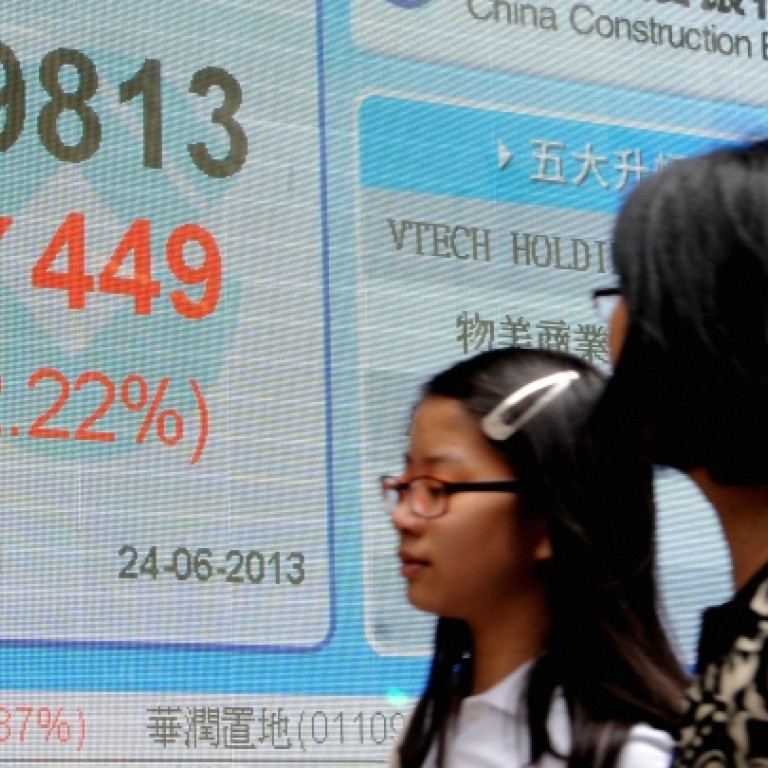
Sell-off due for stocks as funds switch to cash
Asset managers say they expect the Hang Seng Index to fall further as earnings growth weakens
Many of the world's largest asset managers plan to sell off more of their Hong Kong stocks, and they expect the Hang Seng Index to fall further this quarter as earnings growth weakens, a survey suggests.
Six out of 10 fund houses in the quarterly SCMP Hong Kong Fund Manager Survey plan to sell down their equity holdings in Hong Kong and mainland firms, especially the latter, in anticipation of more earnings downgrades as the August earnings season approaches.

Paul Chan, Invesco's chief investment officer for Asia ex-Japan, said: "At the beginning of this year, fund managers were looking for 12 per cent earnings growth this year for firms in the MSCI China Index, but now I think we would be lucky not to see negative growth this year.
"We are undergoing a big de-rating process, and fund managers feel reluctant to pay high [price-earnings] ratios," Chan said.
The Hang Seng Index fell 6.7 per cent in the second quarter of this year, the biggest quarterly loss since the third quarter of 2011.
The index has fallen since mid-May, as investors started to withdraw money from emerging markets in response to a stronger US dollar and rising prices for 10-year US Treasury notes, after the Federal Reserve signalled plans to taper its asset purchases this year. But even as the index trades at its cheapest level since 2009, fund managers see more price falls down the road.
Chay Kai Kong, the managing director for Greater China equities at Manulife Asset Management, said: "We are in a healthy bottoming process but may not have reached the bottom yet."
Chay said 19,000 points could serve as a technical support level for the Hang Seng Index.
In contrast with the previous survey, when eight out of 10 houses were overweight in equities, three firms have moved to underweight equities in their portfolio for the third quarter, overweighting cash instead.
Thomas Poullaouec, head of strategy and research at Asia Pacific Investment Solutions, a unit of State Street Advisors, said: "We have moved into 'high risk aversion' mode after remaining in 'low risk' mode for more than a year and a half. We favour cash, [at least] for the first part of July."
Half of the fund managers expected the mainland's Purchasing Managers' Index (PMI), a key gauge of factory activity, to stay in the contraction zone below 50 for three months, starting this month. The HSBC China PMI fell to a nine-month low of 48.3 in May.
Chay said: "Earnings will get hurt, as credit will remain quite tight in the short term on the mainland, since Beijing will not liberalise many sectors to allow private funds into them, and local governments are already highly geared."
Two-thirds of the fund mangers surveyed viewed internet firms as the most bullish sector for the coming three months, followed by banks, whose stocks have fallen because of the cash crunch on the mainland.
"It would be safe to add some [mainland] banks at 0.8 times book value," Chay said.
Those who took part in the survey, conducted in the last week of June, were asset managers from 10 leading international fund management companies: Allianz Global Investors, Baring Asset Management, BNP Paribas Investment Partners, Henderson Global Investors, HSBC Global Asset Management, Invesco, JP Morgan Asset Management, Manulife, PineBridge and State Street Global Advisors.

